Cinefex was a magazine that, from the early 1990s onwards, was published bimonthly. Each issue specifically focuses in-depth on the technical aspects of the special, or rather the visual effects (VFX), used in theatrical motion picture productions or, far less frequently, in a particular television production which had been groundbreaking in this regard. The Star Trek franchise was well represented as all Star Trek films, save one, have received extensive coverage in the magazine. (see below) Launched in 1980 under stewardship of Don Shay, it did become the foremost periodical magazine on "special effects", as it was known in the industry at the time, and remained in print for over four decades until 2021. Editorial staff has, at some points in time, included Star Trek alumni Mark Cotta Vaz and David C. Fein.
Though there is a certain overlap in the subject matter with the contemporary magazines American Cinematographer and Cinefantastique, Cinefex's focus lies on the various aspects of creating of what is presently called "visual effects", whereas American Cinematographer is focused on the actual filming techniques and Cinefantastique, together with another contemporary publication, Starlog, covered a lesser in-depth but wider range of behind-the-scenes aspects. Additionally, neither Cinefantastique or Starlog showed Cinefex's bias towards television productions as they were well represented by them, contrary to the film-only focus of Cinefex. The magazines therefore, could have been considered complimentary.
A trademark feature of the magazine has traditionally been the absence of text imprints on its cover, save for the title and price information in small print. However, in the late 1980s, barcodes were introduced in the magazine world and they started to become prominently featured on the front cover, somewhat "defacing" the Cinefex cover art from 1993 onward, and aggravated thirteen years later when more prominent text imprints, pertaining to a magazine issue´s contents, were also added, starting with issue 106. Yet, as a courtesy to subscribers/collectors, Cinefex continued the old, "clean" format for its first print run, while using the new, "defacing" format for reprints and retail dissemination.
Having become a leading publication on the VFX subject matter, the magazine has seen several international variants in translation, released by local publishers; in Japan, the magazine has had by far the longest run, and was intermittently published from mid-1983 onward by several publishers, though the contents were not in sync with their American counterparts at first. The first publication run lasted for only twelve issues and ended in December 1985. [1] The magazine was relaunched in July 1993, with a restarted numbering as reference books (being endowed with ISBN-numbers) in a vertically orientated format, as opposed to the standard American lying format. In 2003, Cinefex LLC. pulled the license of the relaunch publisher Toys Press Inc. for copyright violations, after it was discovered that they had released unsanctioned side publications based on licensed Cinefex copy, among others a 1997 ILM/Star Wars book (ISBN 4924930997). [2] The first relaunch run had lasted for thirty-nine issues. [3] From June 2006 onward, the magazine was relaunched, synchronized for the American version contents with a one issue lag, for a second time by Born Digital, Inc., with again a restarted numbering in the format its immediate predecessor had employed, at first adopting their "clean" cover approach before abandoning the format themselves in the early 2010s. The second relaunch lasted for 47 issues, ending its run in late December 2017.
Less successful and far shorter-lived efforts were undertaken in France (five issues plus one single October 1992 issue, stemming from a failed relaunch attempt), Italy (seven edited issues, renamed "CineVfx" for the last three issues [4]) and Russia (which lasted somewhat longer, as at least twenty-nine issues were known to exist by January 2012 [5](X)). As if to underscore the growing importance Chinese digital effects companies play in the global motion picture industry, publisher Don Shay launched with much fanfare a Chinese-language version of the magazine on 29 July 2015, in a ceremony at the Chinese Dexter Studios, Beijing. Its publishing company had released the first, vertically orientated issue four days previously, synchronized with issue 142 of the American source publication. [6] There is however, no evidence to support the premise that the Chinese-language edition lasted beyond the single debut issue. Save for the Japanese editions, none of the other foreign iterations are known to have featured any of the Star Trek articles. The 2017 demise of the Japanese version left the originating US magazine as the sole remaining edition by that time.
Recognizing the prominent position the magazine had gained in the eyes of professionals in the field of VFX, The Visual Effects Society awarded Don Shay in 2005 with a honorary VES Award, the "Board of Directors Award", for "illuminating the field of visual effects through his role as publisher of Cinefex." [7][8] The Society followed up on this honor in 2014, when it sponsored a special "36 Years of Cinefex" event at the UCLA highlighting the "magazine's definitive coverage of the most explosive and innovative era in visual effects history." The event was moderated by Star Trek/ILM alumnus Craig Barron. [9]
On 23 February 2021, a social media announcement stated that the magazine had ceased production immediately after the publication of issue 172, due to the severe economic downturn related to the COVID-19 pandemic. The economic downturn also entailed a dearth of new "genre" theatrical productions (traditionally the main focus of the magazine), which resulted in the magazine becoming unable to maintain its regular bi-monthly publication frequency, it becoming much more erratic instead with only two issues released in its final year. The editorial staff tried to counter the drought by shifting its traditional focus from theatrical productions to the plethora of productions made for the new streaming services, "The answer was obvious: content from streaming channels would still air as planned, no matter what, and likely to an even larger audience. We had briefly talked about doing an all-streaming issue in the past. If ever there was a time to do it, it was now." (Cinefex, issue 171, p. 12; [10]) Starting to do so with its 40th anniversary issue (#171), it turned out to be too little, too late, and the magazine folded after its subsequent issue. In a sense, the magazine became a victim of its own prejudice towards streaming services, the pre-pandemic prevalent attitude it shared with mainstream Hollywood, and like them vastly underestimating the impact streaming had on the industry. After more than forty years in print, the publishers poignantly added when they announced their decision on X (formerly Twitter), "We did our best to weather the storm, but ultimately the storm prevailed." [11]
Star Trek coverage[]
Cinefex's very first issue was equally dedicated to Star Trek: The Motion Picture and the film Alien. Additional pieces on the Star Trek film became published in two subsequent issues, making The Motion Picture the only Star Trek film that was endowed with multi-issue coverage in Cinefex. Star Trek: The Next Generation was noteworthy for becoming one of the few television productions to be covered in detail in magazine issue 37, of 1989. The launch of Star Trek: Deep Space Nine was covered in 1993, albeit far less in-depth than was customary for film feature productions – or The Next Generation for that matter – , with two short two-page articles, in essence amounting to no more than glorified editorials, on the effects in "Emissary".
Noteworthy is that Star Trek II: The Wrath of Khan has not received any coverage in Cinefex, though an article about that film was apparently written at one point as Kevin Martin, a former freelancer who had written four major consecutive Star Trek film articles for the magazine, later recalled, "There was in fact a Star Trek II article commissioned by publisher/then-editor Don Shay, but he found it unsatisfactory and 'killed' it. I freelanced for the magazine from 1990 to 1998 and was staff writer there till the end of 2000 (…), and I spent a lot of that time trying to get a look at the TWOK manuscript without success. It must have been a real disaster, because I know of very few Cinefex pieces that were killed off rather than printed." (source) On the other hand, while its contemporaries shied away from it due to its bad reception at the time, Cinefex became the only publication to even report at all in detail on the VFX of Star Trek Nemesis.
The demise of the magazine notwithstanding, each of the two final issues did feature a major article on Kurtzman-era Star Trek, the very last one in one sense coming full circle for its major Star Trek piece, just like the very first issue four decades earlier.
Notable issues[]
Of particular relevance to Star Trek are the following issues:
| Issue | Cover | Contents |
|---|---|---|
| 1, March 1980 (USA) 4, 1 May 1984 (Japan) |
 USA cover  Japan Cover |
Star Trek: The Motion Picture:
This Japanese issue has been the only known foreign-language edition to carry a Star Trek-themed cover. |
| 2, August 1980 | 
|
Star Trek: The Motion Picture:
|
| 11, January 1983 | 
|
Star Trek: The Motion Picture:
|
| 18, August 1984 | 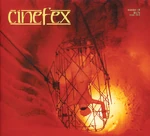
|
Star Trek III: The Search for Spock:
|
| 29, February 1987 | 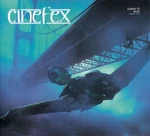
|
Star Trek IV: The Voyage Home:
|
| 37, February 1989 | 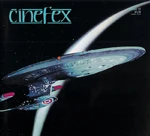
|
TNG Season 1:
|
| 42, May 1990 | 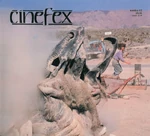
|
Star Trek V: The Final Frontier:
|
| 49, February 1992 | 
|
Star Trek VI: The Undiscovered Country:
|
| 54, May 1993 |  First printing cover 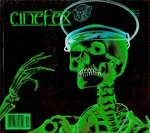 Reprint/retail cover ASIN B01M01SCCH |
Star Trek: Deep Space Nine:
|
| 55, August 1993 | 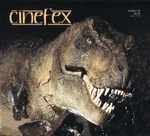 First printing cover 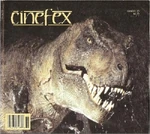 Reprint/retail cover ASIN B001DRO57S |
Star Trek: Deep Space Nine:
|
| 61, March 1995 9, 20 December 1995 (Japan, 1st relaunch) |
 First printing cover ASIN B000OONICE  Reprint/retail cover ASIN B002JHSFA4  Japan cover ISBN 492493058X |
Star Trek Generations:
|
| 69, March 1997 19, 28 December 1998 (Japan) |
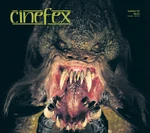 First printing cover ASIN B0016M0O0W 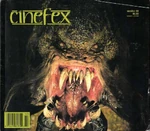 Reprint/retail cover ASIN B0057BAEVC  Japan cover ISBN 4924930687 |
Star Trek: First Contact:
|
| 77, April 1999 23, 28 December 1999 (Japan) |
 First printing cover ASIN B005MSJK7Y  Reprint/retail cover ASIN B000KGAE28  Japan cover ISBN 4924930288 |
Star Trek: Insurrection:
|
| 93, April 2003 39, 28 December 2003 (Japan, final issue 1st relaunch) |
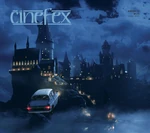 First printing cover ASIN B0015MQPW4 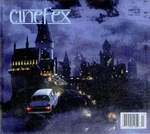 Reprint/retail cover ASIN B00723P5GW 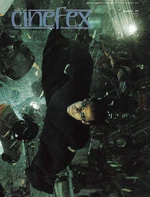 Japan cover ISBN 4887750390 |
Star Trek Nemesis:
|
| 118, July 2009 14, 26 September 2009 (Japan, 2nd relaunch) |
 First printing cover 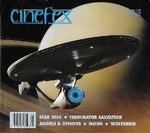 Reprint/retail cover ASIN B005RPUTXQ  Japan cover ISBN 4862460917 |
Star Trek:
|
| 134, July 2013 30, 30 September 2013 (Japan) |
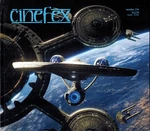 Variant cover 1  Variant cover 2  Reprint/retail cover ASIN B00EW0SQ5A  Japan cover ISBN 4862461751 |
Star Trek Into Darkness:
The Star Trek variant cover was the rarer one, only sent out to subscribers, and has not seen a reprint or retail dissemination, therefore becoming quite collectible in its own right. |
| 148, August 2016 43, 27 December 2016 (Japan) |
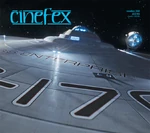 First printing cover 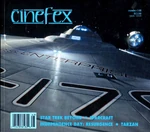 Reprint/retail cover ASIN B01LIEY3UE  Japan cover ISBN 4862463061 |
Star Trek Beyond:
|
| 171, June 2020 | 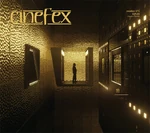 First printing cover 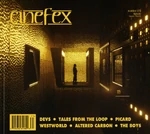 Reprint/retail cover |
Star Trek: Picard, Season 1:
|
| 172, February 2021 |  First printing cover  Reprint/retail cover ASIN B08563KCZ7 |
Star Trek: Discovery, Season 3:
Final issue |
External links[]
- Cinefex.com – Official website
- Cinefex at Wikipedia
